Contrary to what one might think, inflammation is not necessarily a bad thing. The inflammatory reaction is even a good sign: it means that our body is getting rid of pathogens and is establishing a protective mechanism.
Some nutrients (vitamins, minerals, trace elements…) act as anti-inflammatories. They thus help reduce inflammation and relieve associated symptoms.
When you want to avoid medication such as aspirin, or reduce its use, these nutrients are interesting solutions for preventing or reducing inflammation.
Here is our top 5 of the best natural anti-inflammatories. To fully understand the inflammatory mechanisms and how certain nutrients act against inflammation, see the list below!
1. Turmeric
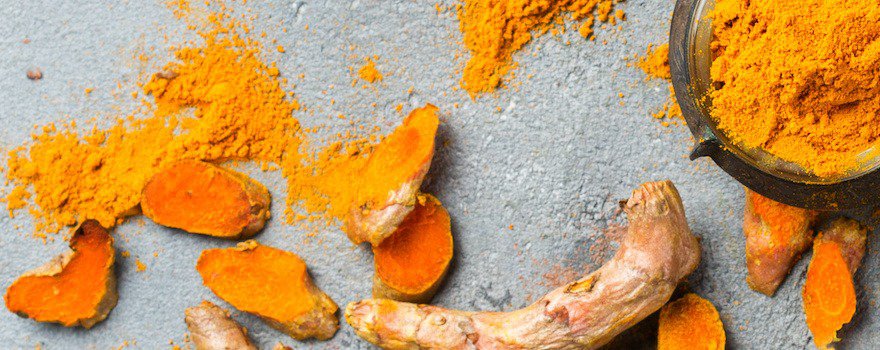
Detoxifying, antioxidant, anti-stress, and antidepressant, turmeric (Curcuma longa) is also a powerful natural anti-inflammatory. A flagship plant of Ayurvedic medicine, its rhizome contains curcumin, a yellow-orange pigment capable of effectively fighting inflammation.
In addition to playing a protective role, curcumin acts within the inflammatory process. It first blocks the NF-κB protein, which, when malfunctioning, can lead to an excessive inflammatory and immune response. Curcumin then inhibits the activity of molecules responsible for inflammation.
Consuming turmeric is particularly interesting for relieving pain related to arthritis, osteoarthritis, rheumatism, or other chronic inflammatory diseases.
Turmeric can be consumed as a dietary supplement, most often in capsule form. But it’s also possible to cook with fresh or powdered turmeric: don’t forget that turmeric is first and foremost a culinary spice! Its warm, peppery taste goes very well with vegetables, white meats, fish, and shrimp.
You can also make a delicious turmeric/lemon infusion, don’t forget a pinch of cinnamon.
2. Ginger
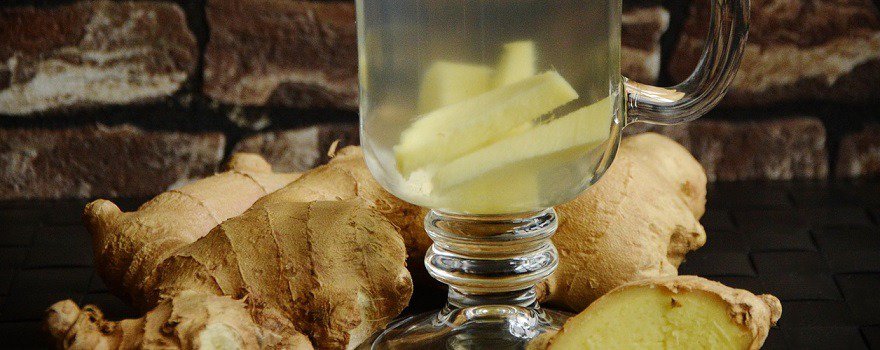
Reputed to be an aphrodisiac, ginger (Zingiber officinale) primarily helps to reduce inflammation. Originally from India, it produces rhizomes rich in gingerol, shogaol, and paradol. Under these curious names lie spicy compounds with anti-inflammatory and pain-relieving benefits.
Gingerol, the main active component of ginger, protects cells against inflammation and stimulates the immune system functions. At the same time, it tackles joint pains. This is why ginger is an ideal food for relieving arthritis and inflammatory rheumatism.
Ginger can also reduce muscle inflammation caused by physical activity or painful periods.
Fresh ginger has a spicy taste and a lemony aroma. If you wish to use fresh rhizome, you can, for example, make a refreshing apple/banana/ginger smoothie. As a spice, it enhances both savory and sweet dishes.
Another idea for consuming ginger: prepare a winter infusion. Steep 1 teaspoon of ginger powder in a cup of hot water for 20 minutes.
3. Moringa
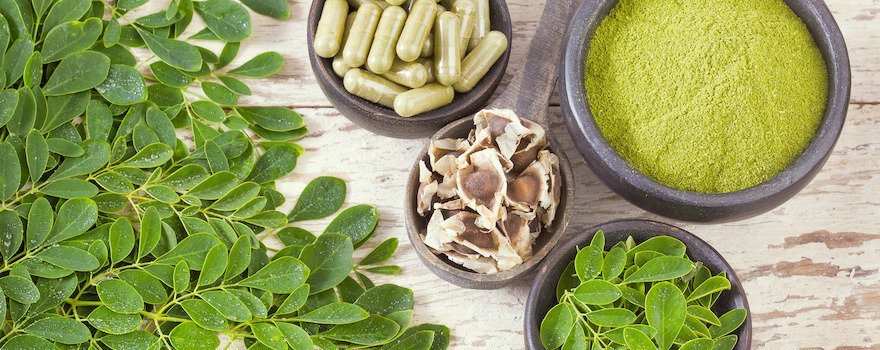
Moringa (Moringa oleifera) is a tree whose different parts are used in traditional Indian medicine. Known as an energizing remedy, antioxidant, and hypoglycemic (it reduces blood sugar levels), moringa also has anti-inflammatory properties.
It owes this property to the isothiocyanates and quercetin it contains. Quercetin is a flavonoid known to reduce inflammation and immune response, especially in cases of allergic reactions. As for isothiocyanates, they are organo-sulfur compounds capable of alleviating chronic inflammation by regulating inflammatory biomarkers.
Available as a dietary supplement, moringa can also be found in powder form. It has a slightly spicy and lemony taste. You can add moringa powder to your juices, smoothies, and yogurts.
4. Green Tea
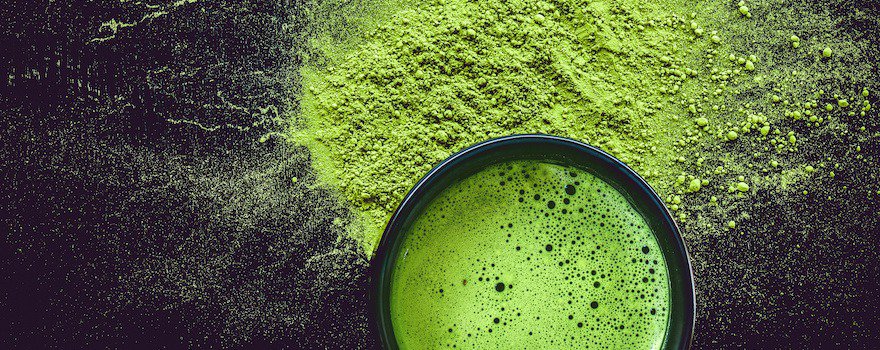
We all know the benefits of green tea (Camellia sinensis) on metabolism, weight, or body detoxification. But did you know that green tea also has anti-inflammatory properties? Its richness in polyphenols makes it interesting for preventing inflammation and relieving symptoms such as joint pain.
Green tea also contains epigallocatechin gallate (EGCG), an anti-inflammatory flavanol that reduces cytokine production. Finally, the effects of green tea are complemented by its other components: vitamin A, vitamin E, minerals, amino acids…
Green tea can be consumed in its most classic form: as a hot or iced beverage. But you can also incorporate green tea leaves into sweet recipes such as rice pudding, cake, or panna cotta. We also invite you to discover matcha, a green powder obtained by grinding green tea leaves.
5. Green Vegetables
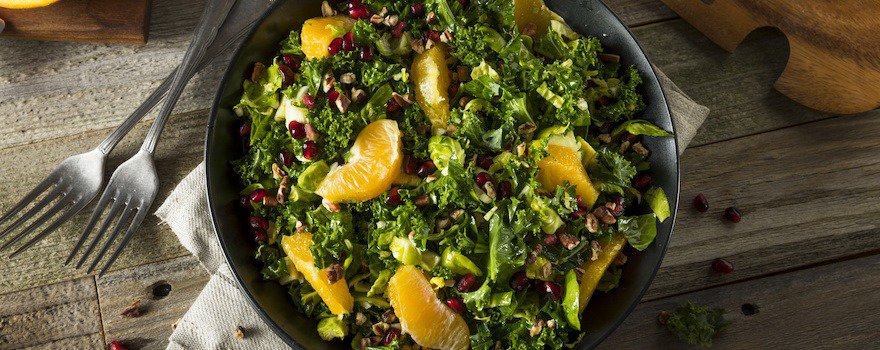
Indeed: most green vegetables have anti-inflammatory effects and can help reduce your aspirin intake. This is particularly true for cabbages like broccoli, cauliflower, Brussels sprouts, and kale. These crucifers share a common feature: they contain sulforaphane. Besides being an antioxidant, this organosulfur compound also reduces the production of pro-inflammatory cytokines.
You can enjoy green vegetables in many ways! While most cabbages are eaten cooked, some can be eaten raw, such as kale (Brassica oleracea) with its very mild taste. Cook them in salads, soups, smoothies, and, why not, as chips!
Nutrients Against Inflammation
What is Inflammation?
When a muscle is overworked, for example, it sends a nerve message to the brain for protection. Once the information is processed, muscle inflammation and repair processes are triggered, resulting in warmth, redness, or even swelling at the site of the injured muscle.

The causes of inflammation are multiple. Thus, the body can trigger an inflammatory reaction in case of:
- Intrusion of a pathogen (bacteria, viruses, fungi)
- Physical injury or trauma
- Detection of a ‘false threat’ (allergy)
- Auto-inflammatory or autoimmune diseases
As for the symptoms of inflammation (grouped under the name of inflammatory syndrome), they can also be of various kinds. Generally speaking, inflammation causes:
- Intense fatigue
- Redness
- Swelling
- Pain
- A feeling of warmth
- Loss of appetite
Magnesium Against Muscle or Chronic Inflammation
Magnesium is a nutrient closely linked to the muscle inflammatory process. This is why a magnesium deficiency often results in cramps and muscle pains. This nutrient is valuable for reducing transient but also chronic inflammation.
Magnesium regulates the concentration of calcium in the body. Indeed, when it is in excess and accumulates in the body, calcium becomes undesirable and promotes inflammation. Magnesium thus helps maintain the right balance.
Magnesium has the advantage of being present in many foods. Nuts, seafood, vegetables, and even cocoa powder are excellent dietary sources of magnesium. It can also be beneficial to choose mineral water rich in magnesium.
Vitamin A Regulates the Inflammatory Process
Vitamin A, also known as retinol, acts directly on the inflammatory process, particularly on MCP-1 (monocyte chemoattractant protein 1). Naturally secreted by the body, it is partly responsible for inflammation. MCP-1 is, for example, involved in rheumatoid arthritis, a chronic inflammatory disease affecting the joints.
Good supplies of vitamin A help regulate MCP-1 secretion and also strengthen the immune system, which triggers the body’s defense mechanisms in case of lesions or infections.
Red bell pepper, carrots, cod liver oil, dairy products, and eggs should be prioritized for a good intake of vitamin A.
Vitamin E Protects and Reduces Pain
Like vitamin A, vitamin E acts at the heart of the inflammatory process by reducing the levels of cytokines, molecules involved in inflammation. Pro-inflammatory cytokines are secreted by immune system cells. While they play a crucial role in the healing process, they can also amplify the inflammatory response. Vitamin E helps reduce cytokine levels to control inflammation.
Vitamin E is found in significant amounts in nuts, certain vegetable oils (wheat germ, sunflower, peanut, olive, rapeseed, or corn oils), spinach, mango, or kiwi.



